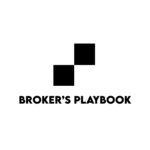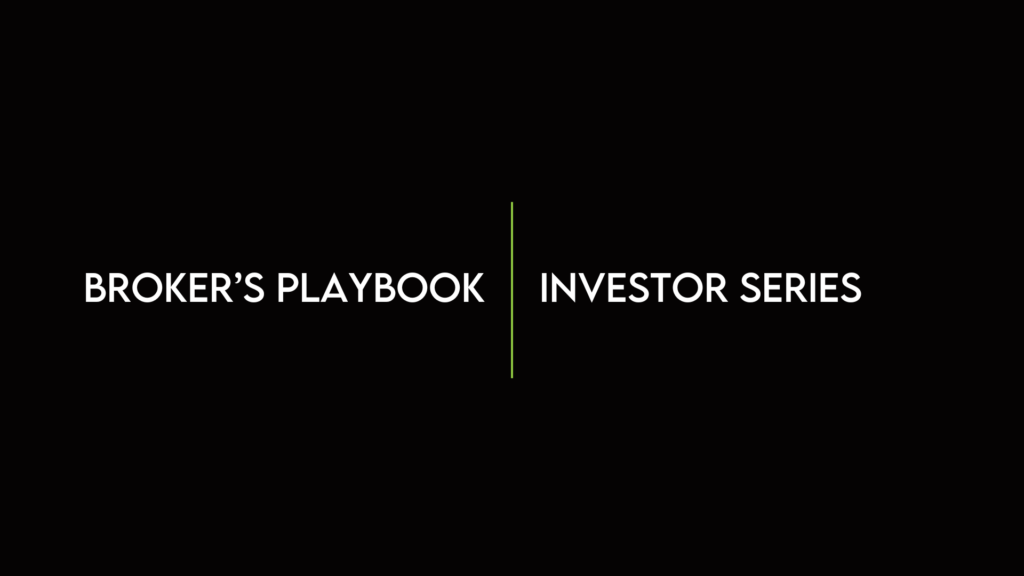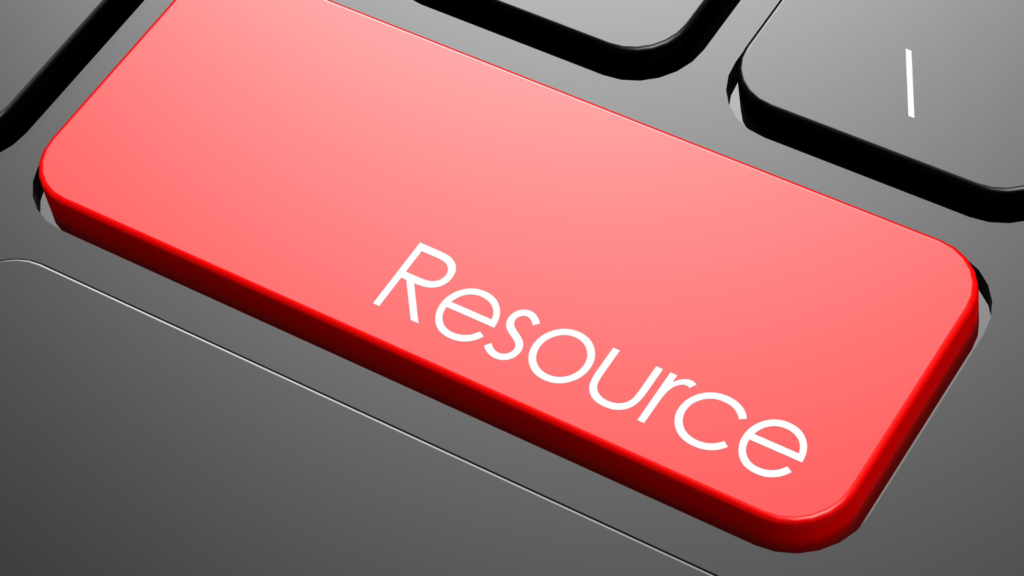
Collaboration, Communication, and Trust
Join us as we delve into the key principles of successful real estate collaboration with Brianna Frith, Chief Executive Officer at Endhome. Discover the importance of understanding your client’s stories, aligning values, and maintaining open communication throughout transactions. Learn how to build relationships based on trust, transparency, and collaboration for a more fulfilling and successful career in real estate based on Brianna’s actual playbook.
Simeon Papailias: What’s up Brokers Playbook? Family. It is Simeon, Papa Elias. And today I’m bringing something special. She’s young, she’s strong, she works hard. She’s a successful entrepreneur. And her name is Brianna. Fred. Brianna is going to bring her A-game to the show. So listen carefully. You will be inspired and hopefully you can break your own barriers, too. If you love the show, please take a moment to review it. And of course, subscribe. We’re looking to more collaboration, collaboration, COLLABORATION together! Get in there. Brianna Frith Welcome to Brokers Playbook. It is a pleasure to have you here, my friend.
Brianna Firth: It’s a pleasure to be here. Thank you, Simeon.
Simeon Papailias: I’m very excited for this conversation. I had the team prepare me for this conversation, and I did so by them speaking with you kind of about everything that you do. And we figured we found out that you have a very interesting journey. And I think it’s one that by sharing this journey, our audience is going to get a lot of value. Tell me a little bit about why you thought coming on this podcast would bring insight and inspiration to the Brokers Playbook audience.
Brianna Firth: Absolutely. So first off, I just wanted to say thank you so much for having me. I do think that by being on here, hopefully, I will reach and be able to connect and help other agents and people in the real estate landscape discover their true passion and the abilities that they really do have right at their fingertips. So I thought it would be great and insightful just to share my journey not only as an entrepreneur but as someone in the real estate industry that started as a mortgage agent that’s now running a real estate legal consultancy. Sounds so farfetched from where I started, but to see the journey and the process, that’s really where the Enlightenment comes from. And I think for everyone, their journey looks different, but it helps to hear from someone else’s mouth what they’ve made possible with the tools and the experience that they did have. So I hope to provide more insight and inspiration around entrepreneurship, breaking out of the box and making a difference and trying to be different and have a different angle and a different look than the other perspectives.
Simeon Papailias: So I think we evolve every day, both personally and professionally. It’s a matter of what we give weight to. What do I mean by that? I like. If you if you are a person who acknowledges that change is the only constant.
Brianna Firth: Mm hmm.
Simeon Papailias: That is the very foundation of entrepreneurship.
Brianna Firth: Yeah, absolutely.
Simeon Papailias: Entrepreneurship cannot happen if you don’t have something to change, something to improve, something to innovate, something to disrupt. For. For. For all intents and purposes, every single time we open our eyes in the morning is an opportunity, an opportunity to improve other people’s lives. The marketplace, the services in any said market. And as. De facto entrepreneurs that both mortgage brokers, realtors, brokers. Anybody in sales is already an entrepreneur because you decided as a person that your value for the services you provide are not going to be defined by a wage. They’re not going to be defined or limited by somebody else’s mandate. The ability we have as as brokers in real estate, as mortgage brokers, is the ability to infinitely scale should we have the right tools and circumstances. And that’s exactly what you did. You were in the mortgage business. Tell us about how you started, what that was like and, of course, what circumstances did you use to move the needle and or pivot into a new industry?
Brianna Firth: So I started very young. At 18 years old, I got my mortgage agent license as soon as I could. I also had my child at 17, so I started very early and I was basically put in a situation where I could be that stereotype where you face every single challenge there is, given my circumstances at the time. Or I could turn it around and try to make the best of it and reach all of my goals. So I decided, how am I going to make money at home with my newborn and have that fluidity and that independence? And I decided to jump into the real estate market as a mortgage agent. To be quite honest, the time of the course really was attractive because it was a week. So I was like, okay, I can do this in a week. And if I like it, amazing. If I don’t, I can move on. So I decided to go for it. I took the course, I did everything I needed to do. And I also went forward with joining a brokerage. At the time, I didn’t receive any training whatsoever. It was your basic biologics. You know how to operate the system, how to take applications. Really not so much about underwriting, about the importance of making relationships with banks, lenders and all of that other stuff. So I kind of had to figure it out on my own. And I think that was a blessing because if I was led and I was put in this box where I had to stick straight and narrow and stick to mortgages and only mortgages that I might not have expanded the way I did.
Brianna Firth: So what I ended up doing was making lots of relationships, lots of connections. And then one of the connections I made was with a private lender. And so I went from working as a mortgage agent to a business development manager at a mortgage investment corporation. So this was a private lender who needed someone to with experience and knowledge, obviously, but needed someone to represent them and obviously get more deals in the door. And so doing that, I basically kept the same connections and network I had as an individual agent and basically used my new position and my new product to help them in a different way. So some calls that I made were kind of went along the lines of I, you know, I have a new position, I can offer you a new product. And they already had lenders at the time, let’s say. So they weren’t interested. But then other conversations were like, wow, like you just keep coming up with these new products and these new solutions. So it was kind of not a jack of all trades, but to have someone in your corner that’s always going to constantly provide you new solutions and be really penetrated. And innovation was something unique that I think a lot of the connections I have seen.
Simeon Papailias: In this and these are services and products that you were bringing to the consumer directly.
Brianna Firth: To agents. So I’ve always been because of because being a mortgage agent, you work with a lot of lenders and obviously, you know, you make connections out of nowhere. You know, people know people. And so I kind of just kept that group of connections I had and brought them along with me throughout my journey. And some of them are still with me today on the legal side. But I discovered that, you know, at the time, handing out the money and being on one side of the table where I was an agent and I had a bunch of different lenders to now being exclusively with one lender and having less, less options to offer agents, but still something that was going to be backed by customer service, something that was going to be reliable. I felt like I was achieving something even greater. And so after that I decided, you know what, I I’m really interested in like the legal landscape of things. All I had exposure to at that time was my personal encounters with lawyers. Whenever I would send my personal clients to them and, you know, they were very brief. I had to be really heavily involved and I had to track the deal from start to finish. But I wasn’t really seeing the ins and outs of the legal industry. I only knew from my customers feedback and from my client’s perspective what was really going on.
Brianna Firth: So that sparked an interest in me to kind of want to learn more about what goes on at the end. Because I realized that without a lawyer you can’t close a real estate transaction. So they’re very integral. They are so very important and it’s probably wise and worth the investment to make a good relationship with a lawyer so that, you know, all of your clients are happy and so forth. But I went from working at the mic to working at a real estate law firm. And so what I did there was I was able to help their existing business scale by continuing to manage their expectations, their partnerships. And, you know, it’s not a one-transaction one-and-done thing. I think of it as a long-term relationship that lawyers should form with their brokers because, you know, they have such a plethora and a variety of different clientele. So to have a lawyer that can actually speak to each one in a. Personalized way is very unique and very it’s very in high demand, I would say because it’s one thing to have a lawyer that went to law school and only knows the book of the law, but to have a lawyer that knows customer service, how to treat your clients business development, and then also knows how to cater to mortgage agents and real estate agents and speak their language, that only comes from a lawyer who’s either been exposed to that realm, whether they have a real estate license or whether they’ve just had a lot of experience or someone that has the patience and the time to really go out with their broker partners, you know, become not a friend necessarily, but become more of a confidant and first line of defence for them and their clients.
Brianna Firth: And I think that’s where I push the needle forward. So moving from that position, I realized that I had so much more fire in me and I wanted to scale not only number wise, but also different provinces as I wanted to explore more of Canada, because at the time I was only doing business in Ontario. So moving from being employed and like you said, giving up your wage to really pursue entrepreneurship is such a courageous move. It’s scary, but it takes courage. And finding that courage within you is is really what counts. So I moved from that position into home, which now I’m the president and founder of, and here is basically where I plan to make all my disruptive change and reverse any negative stigmas, anything that’s blocking agents and brokers from prospering in their businesses when it comes to the legal side of things. And yeah, being in being innovative and trying to be the change.
Simeon Papailias: Well, I’m going to I’m going to stop you right there. There’s a couple of things that I really want to unpack from the journey, too, from Briana, the employee, Briana, the the new broker. Brianna, the trying to figure out, understand the world, understand what? You know, what you don’t know, which ended up with you founding a company because because during this time there’s a few key. Phrases and. Words, for example, like relationship that you probably dropped on 15 occasions already. Connection at least four or five times. I want to talk about that on its own first, because it just sounds to me that the ticket in key to your success has very little little to do with the product itself rather than the intention. You’re succeeding because the intention that you have is to create a product and service and suite that services the client first, the agent first, the interests first, rather than just the transactional nature of closing a deal.
Brianna Firth: Yes.
Simeon Papailias: Tell me why you believe. Well, I’m not going to say you believe because I believe. I believe you’re a great communicator. I think you can. Infiltrate someone’s barrier and and shield quickly. I believe I have the very same ability. I believe I can get close to somebody and befriend, for lack of a better word, someone very quickly, because I don’t have bad intentions. So when your intentions are good, I think that comes out very quickly. It’s a feeling. It’s an intuition. You you drop your guard when you can figure out that I’m not in danger, that I’m not being hawked on or anything of that nature. In your own words. How do you feel? You do a better job than the average. And how can the average increase their ability to to for connection and relationship? Where do they go? Like when you make a phone call, are you nervous or are you comfortable? What do you say to someone you’ve never spoken to before? Like you called me, for example?
Brianna Firth: Yes. So to be less transactional and to be driven by integrity, Right. Going into every conversation with someone that you plan to do business with, take time to understand their story, where they came from, where they are now, and what they want to achieve. So everyone has their own business model, their own value system, but it’s really about aligning with their value system and meeting them where they’re at, or maybe even offering them a better opportunity to leverage and elevate where technology or other tools within their bandwidth. I also believe that my product isn’t for everyone, so when I am talking to certain people, they only care about, you know, let’s say how quick the deal can get closed or if it can get closed under the table, for example. I’m just saying. But to kind of understand where they are and to to be up front with them and say, okay, look, this is how I can help you. And I think that my service would be of value to you and your clients is one thing, but some some people don’t really care about the financial aspect, let’s say, for example. And that’s okay because I think service comes with a cost and quality comes with the cost.
Brianna Firth: But the bottom line is you want to work with someone that’s transparent and honest. So regardless, if the transaction, let’s say, is not cookie cutter, it’s very expensive. It’s going on for four or five months. It’s taken a lot of time. There’s a lot of back and forth. Might not be the broker’s fault or the client’s or the lawyer might be the lender who knows to stay with that client and to stay with that broker the entire time and to be transparent about where that what direction it’s going is an example of how people gain respect for you. People acknowledge your piece and your part in the transaction and how we can keep it away from turning into just a transaction and instead a long term business relationship. So in my own words, I would say that relationships, connections and being communicative is immeasurably important, something that is irreplaceable. And it’s very hard to find, especially in the legal side of things. Working with lawyers, they are more focused on volume in real estate because they are not billing by the hour. So it’s a it’s a volume based industry. And because it’s a volume based.
Simeon Papailias: And that’s not a good thing, it’s just not it doesn’t it doesn’t bring out the best performance in anyone. It doesn’t give someone a reason to go above and beyond.
Brianna Firth: Exactly.
Simeon Papailias: By nature. Yeah.
Brianna Firth: Yeah. So if a lawyer is doing 8 to 10 closings a month, not to say that they’re not bringing in additional, but they may not close in that same month because closings differ from when you actually create that deal. They may look at, okay, if I’m making eight or ten closings a month, I still have my goal of 30,000 in revenue. So let me charge those 8 to 10 clients over three grand just to get to my goal when in reality they shouldn’t be paying more than 18, let’s say, all in. So that’s just an example like thinking about the long term instead of the short-term gratification or the short-term gain is really hard to get out of real estate lawyers because they’re volume-based, but at the same time, they cannot grow their practice if they’re overcharging or if they’re being not transparent and stuff. So they kind of get in this knot where they’re unsure of what to pursue and then they may explore other practices in law, whether they’re corporate, civil, criminal injury, immigration. And so they have now a mix of different practices where they’re not actually focused. So what I see is they get clerks and they get assistance to kind of fill the gaps so that they can continue working on their work. And then they put their focus on other practices. And what happens is they’re unable to be on top of communication. They’re unable to really be exclusive and give that one-on-one personalized attention to their clients because they’re really chasing that dollar right. Versus their long-term goals and their long-term relationships and collaborations with these clients and brokers.
Simeon Papailias: So the de facto model of the legal industry is what promotes and enables these behaviors. Yes. And not that it’s anybody’s fault. That’s just the marketplace and how it evolved over time. But we can rest assured that human nature will always prevail as opposed to the right things at the right time. There will always be exceptions and phenomenal lawyers that will put the client first at whatever price.
Brianna Firth: Exactly.
Simeon Papailias: There will always be those outliers, but they will never be. The general consensus. The general consensus when you have a fixed price and or a limitation and you’re depending on volume to reach your goals, is going to find the shortest road to victory with at least amount of work as possible. That’s just human.
Brianna Firth: Nature. Yes, for sure.
Simeon Papailias: To finish off. Connection to finish off relationship. It sounds to me that as we’re going to get into the platform that you created and home. It sounds to me that what you are actually addressing. What you’re actually fixing. What you are what you found. The opportunity in is collaboration, communication, and trust.
Brianna Firth: Yeah.
Simeon Papailias: You took that into your hands and said, don’t worry about the rest. It’s me you’re talking to. Yes, I’m going to take it from here and deliver an exceptional experience. Is that what drove you?
Brianna Firth: Communication is number one. And then number two is accountability. That has been a huge word for me. Obviously, being a self funded founder, you know, you only have so much room to make certain mistakes and you learn as you go. But then accountability on the lawyers side is basically what I am and what my role provides. I am that extra insurance on the deal. I am what keeps these lawyers accountable and through our processes, through our fail safe processes that we contribute to, that we try to always put first. That’s how we’re able to to stand firm on our beliefs and our values. But accountability is definitely number two. Communication is what drives every transaction to the finish line so we can close because if we’re not communicating to a lender, if we’re not communicating to the broker, the client, it’s not closing, period. So communication is number one for sure.
Simeon Papailias: Awesome. Well, I thank you for clearing that up. I also heard the word values. It is something that most and when I say this, I say it with absolute certainty because I’ve been in this game now for 17 years and I have one of the largest real estate teams in Canada. And if we were to look traditionally at my business model, it is not a question I ever ask the people I brought on to my team. What are your values? It is an actual mandatory part of my team now that not only do they have values, but they know what their values are. Anybody in this business needs to know what they stand for. Hmm. Brianna, what do you stand for? What are your values?
Brianna Firth: So first I would say integrity always, whether or not someone’s watching, someone’s in the room, someone’s aware, always be authentic, always be forthcoming, and always put the client broker, lawyer, everyone first. Right. Just kind of staying away from that idea that everything’s a transaction and instead looking at human nature, collaboration, right, instead of business all the time. So integrity in business is very hard to find, but something I value extremely because I feel like it’s it’s up there with basically what you need to be able to survive in business. So integrity, relationships, back to what we were saying before, that’s really what’s like to your point made me, you know, go from one position to the other to the other, but still keep those relationships and less of the product necessarily that I’m providing, but more so the person that I am and the energy, the time that I give and the services that I’m willing to extend.
Simeon Papailias: When you say that the person that I am is is your values, that your values define the person that you are. The reason it’s so important is because your values define your value proposition to the marketplace.
Brianna Firth: Exactly.
Simeon Papailias: And your value proposition has to be both portrayed and put on a grandstand at this point in civilization in North America, unless you get loud about who you are and what you stand for, you’re not going to have a competitive advantage. Because you need to tell the world in your words that this is what I stand for. Hiding behind motives or agendas, sitting on the fence, on things that are important to all or are not going to cut it at this point. If you’re looking to stick out, if you’re looking to be average, you can stay quiet.
Brianna Firth: Or if you’re looking for a short-term gain, you know, it might work, but you won’t be able to stand the storm.
Simeon Papailias: And I think. The most that I this is what I like people to get out of this show. This is why we produce this show is the word value prop has been used, abused and deluded. People think, oh, what’s my value prop? Well, I want to be an investor focused realtor or I want to be a luxury home. I want to be the best mortgage broker there is. That’s not a value proposition. That’s what you want to do for a living. What does somebody feel when they do business with you? That is your value proposition. That is the reason you get referred. If you were to bring somebody $20,000 more for their home or save them 5000 on their mortgage, but you treated them like garbage. I can tell you that there is a value to dollars and there is people who will take more dollars to be and be treated like garbage, but most people will not. Most people will pay a premium for a great product and great service, i.e. Apple, IIE, Samsung, IIE, Sony, IIE, all the premium brands Louis Vuitton, Prada, Gucci, Mercedes, BMW. When you walk into Honda. No knock on Honda, you’re going to get standard average service.
Brianna Firth: And it’s going to cost you less to fix it.
Simeon Papailias: It’s going to cost you less to fix it. There is less frills. But when you walk into BMW, not only is the service better, your expectation is higher.
Brianna Firth: It’s 100%.
Simeon Papailias: Walking in, I already have an expectation. Let’s not I’m not talking about entitlement because that’s a bad quality. But if I know I’m spending double on a vehicle, then I have to. So I’m not looking for a car that would go from A to B. I am looking for my vehicle. I expect both a product and a service. To bring you all up to speed. If you’re looking to buy a home or mortgage a home, it doesn’t matter which one you are looking for a product, the mortgage and a service from the realtor. You’re looking for the product. Find me the home and a service. So it’s no different if you walk into into any store, you walk into sporting life. Like I can buy the same jacket there that I can buy at any other store. But when I walk into sporting life, I know that I’m not going to find it for 50% off, but I’m going to find, for example, Brianna, the sales person who’s going to tell me all about the coat. She’s going to tell me that they used or gotten organic cotton versus feathers because of this reason. It can take a beating to -40. If you fall on the Hill, you’re not going to tear up your skin because it’s untenable. But she has product knowledge and that is a value proposition. I appreciate everything you’re saying, and I can tell already why you’ve gotten to where you are. Because answering and. Taking and being able to give answers to these matters is what defines us. And and the goal here is for everyone listening to be able to apply some of these principles into their daily habits.
Brianna Firth: People do not forget how you make them feel, right? They may forget what you said. They may forget where it was, but they will never forget how you made them feel. And that’s something I’ve kept very close to me throughout my entire career and my entire journey, both personal and professional. I think it’s very true and how you present yourself, how you make people feel and the space that you give them to exist around you is something that is important. And if you allow people to see a side of you that is true, that is authentic, that is consistent, they will automatically be linked to you and feel more connected and more like they can relate to you and people love to work with people that they can relate to, that they can connect with, and that they have a lot in common with. Whether it’s personal or business, if you guys have the same values or if you guys both believe in how you should be running your business, treating your clients, that right there will trump someone else that doesn’t make you feel as good after a transaction. Or maybe your clients are constantly complaining and that is detrimental to your business in the long term.
Simeon Papailias: But. But this is exactly why. So once we define our values and we get loud about them, it’s not only about business. You’re attracting your tribe, your this, your message and your value system will only resonate with those who care to hear it.
Brianna Firth: That’s why I said earlier, it’s not for everyone, right? Yeah, It’s only for the people that hear your message.
Simeon Papailias: And want to. So now we go from people who want to hear your message. Do they resonate with it? So if I see you sharing your message, I might hear it. But if I don’t like what you have to say.
Brianna Firth: Swipe right. Right.
Simeon Papailias: So not only is it important. To be able to draw attention. It’s it’s the actually draw the right attention. And what I mean by that is by sharing your views and what you stand for and being authentic. Because you can’t pretend you can pretend for a minute. But that’s nothing but a lie, right? And lies never last. Ever, never, never. So if you are going to be authentic and you’re going to get loud about being authentic, you are going to attract the people that are like you and you are going to benefit from a fulfilling life. When you said the people you give time to spend around you, what a gift to be surrounded by those who share the same passion, the same value system, the same weight on integrity. You literally improve your life by surrounding yourself with people like that. Brianna, take us you’ve done this. This is how you got to starting end home. Tell me about first dead end home and tell me precisely what end home does.
Brianna Firth: Wow. First day of home. First day I was bombarded with messages, calls and a lot of congratulations, obviously, from the collaborations that I’ve had connections with before and home and people that have maybe just found me on LinkedIn, let’s say, the day that I launched. So it’s very overwhelming and I felt an overwhelming joy and big like feeling of gratitude at that moment. And it wasn’t okay. I know I made the right decision. It wasn’t necessarily like that kind of gratitude, but it was doesn’t matter if I made the right decision. These people are still with me. These people are still congratulating and happy for me. So I felt very welcomed. I felt very excited and ready to basically continue for the rest of my professional career. So where it’s funny because opening at home was such a journey, and it still is. I mean, we’ve only been around now for almost eight months, so we’re very new. But the growth that we’ve already created is it’s actually very inspiring and I think it will inspire a lot of people. So opening up, we already had our mind made up that it was residential and commercial that we were going to concentrate on. But starting in Ontario and B.C., we didn’t want to overwhelm ourselves too much. And now to think that we do private lender representation, construction deals, commercial and residential, not only in two provinces but in four. We’ve definitely carried our vision much quicker than than we thought then. Then the first day at least. So nd home is something very different than anyone else has seen before. It’s the first of its kind. We are a I like to think of it as a house full of different law firms. So it’s not like we have associate lawyers or lawyers that have been in business for one or two years.
Brianna Firth: We have very sophisticated, vetted particular lawyers that we bring on our team, that our principal lawyers and that I’ve been operating for at least ten years. And so what we do is we house these group of lawyers and depending on their specialty, their expertise, their niche, we pair a client that comes through our door with them and we set them up for success. So we do our intake process much like a usual firm does. We take their information and that helps us solidify our match and that makes our decision much easier because we already have a picture of the profile of the deal and what lawyer would be the best fit for that client and that broker. And so we pair that clients with the lawyer, and that lawyer basically has full autonomy on the deal from there. So they take the deal in, they actually pick up the phone, have a conversation with the client just to make sure they are on the same page and that their tone of voice is experienced. Because I feel like without that initial phone call going into a deal or a transaction, even with your lawyer, it already puts a gap right there because that client may not feel like they can just pick up the phone and call their lawyer cell or get a hold of them and be right there with them through that entire journey. So the lawyer starts every file with a phone call, and then we have a very systematic process that we follow on the back end internally just to make sure that because there are so many lawyers working with us on so many different transactions in so many different areas and provinces, that that doesn’t compromise the quality of the service.
Simeon Papailias: Who owns the relationship?
Brianna Firth: Brianna. Myself. With the lawyers is what you’re asking.
Simeon Papailias: No. So whether it’s the broker, the consumer or otherwise they call end home, that is you and your team.
Brianna Firth: Exactly. Yes. So, for example, it’s accessible for anyone.It is truly a collaboration. So a broker, a client, the client’s mom, the client, sister, anyone, a financial advisor, an accountant. Let’s say they’re working on a well for a client and they want a lawyer to do wills and estate planning. Anyone that needs a real estate legal solution can contact any home. And we will direct you from there. We will do the matchmaking because technically we’re a matchmaker, right? That’s what we do. We pair you with who? Who can provide you the best service level. And then we don’t just. Okay, goodbye. We’re done. We’re done our job. We’ve paired you, we follow you, and we follow the transaction from start to finish to make sure that we are upholding our motto to be right there beside you from start to end and make sure that communication is being uplifted the entire time that we’re promoting accountability and that everyone is on the same page so we can get because, you know, brokers and anyone in the real estate industry is not on a wage for the most part. So closing a deal is just as important to them as it is for their clients to close on that property or to get the funds and proceeds from their sale. Or for the client who’s consolidating debt that needs the funds advanced to them so they can pay for all their credit cards and all of whether it’s student tuition, everyone has their own needs. So we need to put those needs first and understand that every deal looks different. And how we go about matching that client with a lawyer makes all the difference.
Simeon Papailias: I think that’s I think it’s a fantastic service. I think it is a needed service. We we heavily rely on personal relationships with lawyers today. But if you’re in the business, if you’re starting in the business or if you’ve been in the business for ten years or less, it would be very difficult for you to have enough people on your Rolodex to actually service every client properly. So we always end up giving all business to any one lawyer that we have a relationship with, and that may not be the right thing to do.
Brianna Firth: Yeah, exactly. And what’s really interesting about home is so there is a deal that’s pretty straightforward that only needs one lawyer, right? And then there might be a deal where you need two or three lawyers. Let’s say there’s someone being removed or added on to title. Let’s say there is the need for independent legal advice, which is a conflict of interest for the same lawyer to provide that’s already providing representation. So whether you’re a new agent, a seasoned agent, or someone just looking for a variety of different legal solutions, when you come to Endhome, we have you covered because of the level of collaboration our Legal Partners bring to the table. So we’ll take care of the initial portion of the transaction and if there’s any other split or conditions that arise from the lender saying, okay, we request that our clients are receiving Isla, which is independent legal advice or any other sort of transaction, we will go now and match you with a different lawyer on our roster that provides EYLEA. So you as the broker, don’t have to run around and shop on Google for different lawyers to do different portions of the same transaction. If you don’t have that network, we will do all of that matchmaking and sorting out for.
Simeon Papailias: You and you can remove any conflict at any time.
Brianna Firth: Exactly.
Simeon Papailias: Yes, that’s phenomenal, Brianna. That’s a great service. I’m really glad that we were able to share what you do with the broker collaboration community. I want to take one step back to your personal journey, because I think it’s as important as your business journey. I think your success stems from your authentic intentions. And I want to know a little bit more about you and how you face certain challenges. Last week, I, I held a panel at the Buzz Conference, which is an industry collective created by Virginia Munden and her daughter, Isabella Munden, And they’re phenomenal human beings and they’ve put together a brilliant show featuring some of the youngest, brightest, most inspiring people in the business. On this panel, I interviewed a couple of, well, four absolute stars in the business, and they all shared a common story. Two of them are were in their mid thirties. Mothers. And very successful brokers and entrepreneurs that have faced and still face social media challenges, people, judgment, all these things. But regardless, their work ethic and what they’ve done is. Undeniable. There are 50 plus deal producers a year growing scaling laser focused. What was it like for you? And this is important because it’s very this business. Of real estate. This business on planet Earth is still very favorable to males. No matter what we say and do, anybody can have an opinion. But it’s undeniable that by the time we’re 30, which is our prime. Years, most women have to take a break for business just from biology itself. Unless you don’t want to have a family, you have to sacrifice. Yeah. Whether you did it at 17, for example, and whether you’re going to do it again in your thirties or that’s your own business. What is it like to do business as a mother for you?
Brianna Firth: So I am blessed. My child is just like me. So we get along wonderfully. He totally understands. I’m also very honest with him, and he’s only saw me work his entire life. So I hope that when he grows up, he takes that same ethic. Whether he wants to work for someone or be independent. He knows that his mother is a hard worker and I don’t give up. Right. And he knows big words like perseverance. You know, he’s he’s six years old, so he’s very young still. But he impresses me and makes me very proud. I love him to pieces. And I think that being a mother and being a business owner, it actually kind of helps, if that makes any sense. Like being a mother before you’re a business owner. In my case, I think helped my situation because it helps me grow up. It helps me understand life in a different way and to be more accountable and be like, okay, this decision might be small now, but is it going to trickle down? Is it going to cause a greater effect? And so also thinking about the long term and the long game is something that from motherhood I’ve been able to transfer into my business and professional life. So balance is definitely something that I’ve had to keep an eye on and make sure I’m constantly focusing on self care, focusing on Briana, not the mother.
Brianna Firth: Briana not the owner of any home, Brianna, but just me, so that I can perform at my best, right? Obviously there have there have been a lot of challenges along the way just with figuring things out, how to deliver my message, how to also continue on the path that I am without forgetting why I started. Right. And remembering this is all to make the lives of agents and brokers and future homeowner clients easier. And right now it may not be easier for me because my message isn’t favorable to everyone. Some people do find offense, especially certain lawyers. They think that I am basically saying that lawyers are people that don’t have any idea of how to service clients, which is not my message. But being in my position, it’s like I’m being pulled from different directions. I want to be on the client side. I want to be on the broker’s side. At the same time, I also want to be on the lawyers side. So they’re, you know, they’re happy to work and continue delivering that top notch service. But then I’m also a mother that I also have to be on my son’s side, and I also have to be all of that, be all there and be present for him.
Brianna Firth: So he was definitely a gift in helping me pivot from being a mother, working really hard, whether it was mortgage agent, working at that private mic or working at a law firm to be my own business owner. Now, there have been so many pivots in that journey, and so much collaboration, but he’s been with me every step of the way, and it’s only teaching him, Look, don’t give up, Keep going, explore. There’s always going to be different things that you can learn in life. And just don’t forget to put yourself first. Care about your your mind, your mentality, who you’re surrounding yourself with. And to be quite honest with you, one thing that’s kept me very positive and on track has been the law of attraction and studying how the world works, how the universe works, what energy you put out is what you receive and who you are is who you attract. Right? And so business, personal doesn’t matter where what perspective you look at that from. You need to keep that at the back of your mind. Everything has its own way of working out, right?
Simeon Papailias: There is absolutely no doubt about that. I personally am a very spiritual person that does believe in the law of attraction and that absolutely believes in in the mindset of positivity and hope in what’s possible as opposed to what’s not possible. And. My team and the people I surround myself with, save and accept. People that we don’t control, that sometimes enter the circle are all people who share the exact same vision, the exact same mindset, because if they don’t buy in, they are simply there is no room for them. The dreams and the ambitions and the goals that I have for my future that I’ve created for all of us inside our organization are just too big. So unless you think it’s possible, you wouldn’t be here.
Brianna Firth: Exactly.
Simeon Papailias: And that is when the team, through collaboration, becomes the absolute vehicle to success. When you have people sharing that journey and truly believing that anything is possible. Is when you have that breakthrough. Brianna, just to really. Put into perspective for our female audience, because I think it’s just so important. I have screened and interviewed and. More than actually more than 60% of my team is female, which is why I always end up going into these topics because it fascinates me. The people’s drive and perseverance absolutely fascinates me. I’m. As part of you being here, it is your duty to the industry and and to your sisters out there that you would answer any question they have. I’m going to ask you one last question surrounding your supports. How have you set up your supports as a mother that during business hours, for example, you can be free to to put your energy and mind into business? Uh, and what supports do you have in place? How do you separate family from work? And, and then, of course, from business back to family and to Brianna personally. How do you go about that?
Brianna Firth: So I’m very fortunate to have a supportive family. I think that is an advantage that I’m extremely fortunate for about. So they definitely help with watching my son if I ever need that. But he is in school all day, so that that also really helps as well. But I think over and above having someone watch my son, I, like I said, I love for him to be as involved and exposed as possible. Obviously, to a certain degree. And I think having the courage and the ability to ask for help is also very important because you don’t get what you don’t ask for. So being a business owner now, I mean, going into it, I did have a conversation with my support systems and I did let them know, like things are going to start changing. I’m definitely going to have less time, I’m going to have more responsibility. So I was able to use my support systems to help me and to be there to watch my son and to really even even if I’m going through something or I’m overwhelmed. Maybe just enough would be a conversation with someone in my support system where I can feel like they understand and resonate with me and my story. Because not everyone would. It’s hard and it’s lonely sometimes to be an entrepreneur who is at the top. And when I say at the top, I don’t mean like the best and not the most successful. But you are alone because not everyone is at the top with you. So I don’t know a lot of entrepreneurs that I can call, let’s say, and they understand completely where I’m coming from, but I’m also human and support is something you have to be able to ask for. You have to be able to be humble enough to drop your guard down. And and I used to be someone who wanted to do everything myself and wanted no help because I didn’t want anyone to say that they helped me and that they were there. But then I realized that’s only going to be more detrimental to myself and my overall quality of life.
Simeon Papailias: Yeah, you realize that’s only that was only your insecurity speaking because you don’t.
Brianna Firth: Exactly. Yes.
Simeon Papailias: Because you don’t want somebody to rub things in your face. You don’t want people to take credit for your work. Yeah. We’ve all gone through the same exercise. The quicker you get yourself out of that disgusting behavior, that self destroying behavior, that is ego, that is insecurity, the quicker you will succeed, the more people you you rise with and you help come up, the harder they will support you when you need them.
Brianna Firth: Exactly. So I agree.
Simeon Papailias: God bless you for that. Good for you. Briana, we’re going to wrap this puppy up. I want you to tell everyone what is the best way for them to reach you above and beyond, obviously, brokers playbook. Give us your socials, your favorite social platform, and of course, your website.
Brianna Firth: Thank you. So I am on LinkedIn at Brianna Frith. We’re also on LinkedIn as well for home, so please follow us there. Instagram. I’m also very active on Realty with Brea is my personal Instagram page and Home K is our company Instagram page. And then if you’d like to reach out personally to me for an inquiry or any questions, or collaboration, or an introduction, you can always email me at Brianna A.K. And of course, our website is Any Home in the Home. Okay.
Simeon Papailias: For everybody listening, all this will be posted on the BrokersPlaybook.com website. If you are listening on any of the podcasting platforms, please revert back to the website. You are going to be able to also get Brianna’s playbook, meaning what she values, what her service is, and how she brings value to the marketplace. And if you are in the business to all our brothers and sisters, please share the podcast. Like the podcast, help us reach as many people as we can. And hopefully everyone was able to get a tidbit out of this that will put you in a better place tomorrow. Brianna, thank you for coming on. I appreciate you. Until next time, this is Siemian with Brokers Playbook podcast. Thank you so very much for spending your time with us here at Brokers Playbook. This is a growing community. If you found value in this video, please invite others to subscribe and of course, share the videos with. We’ll see you soon.








